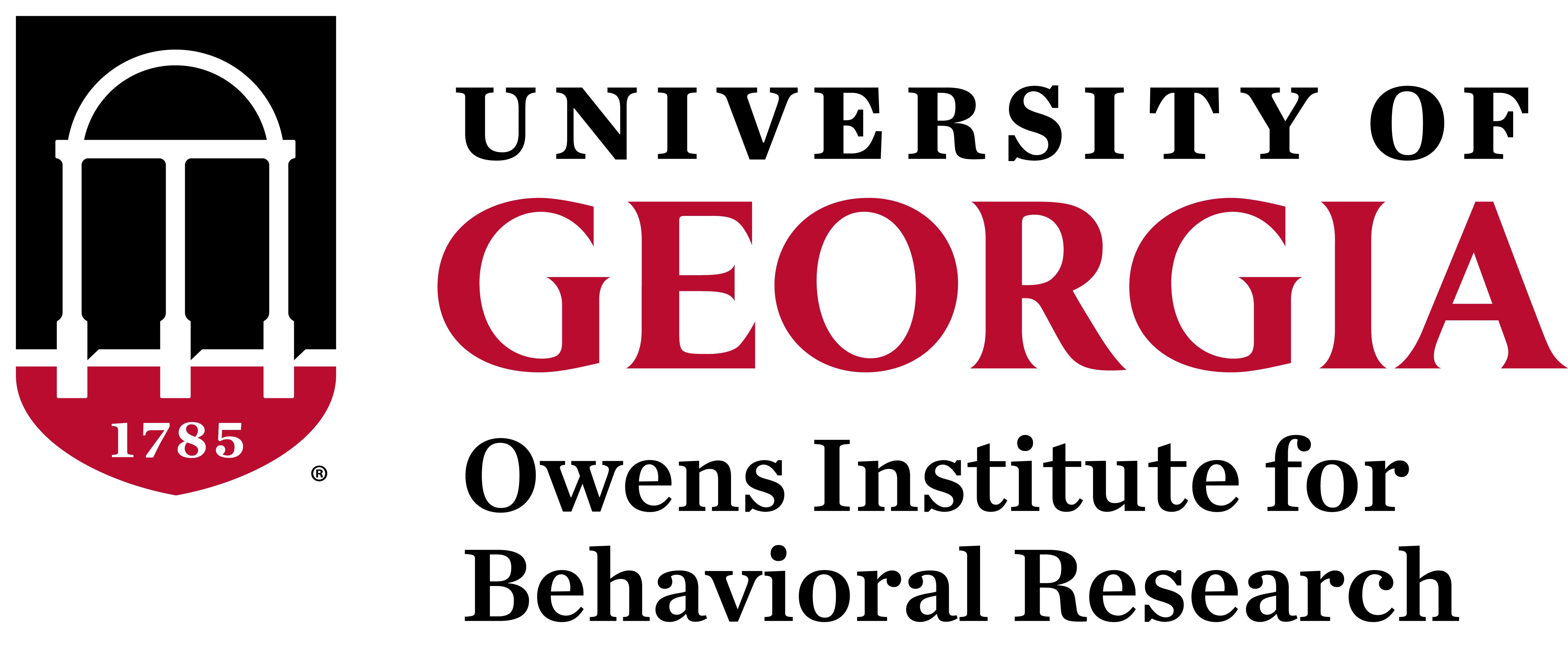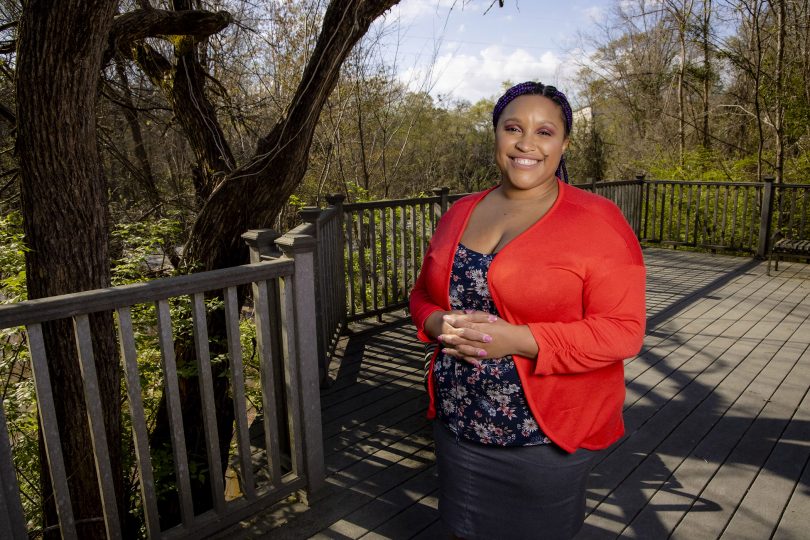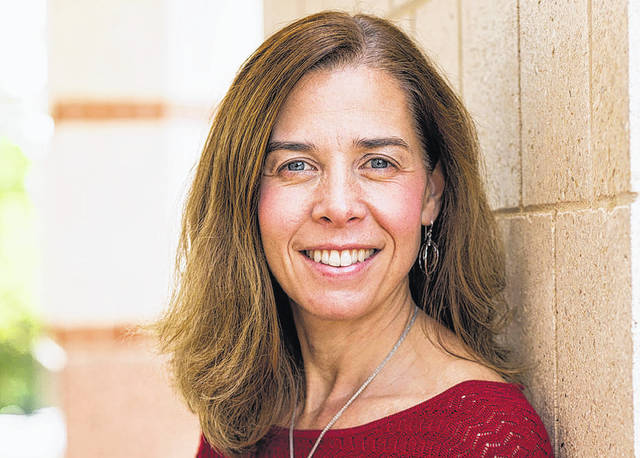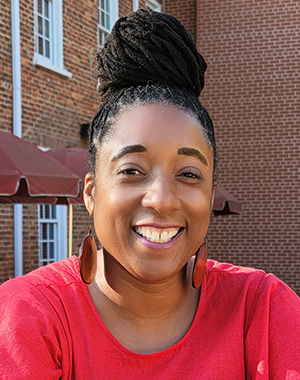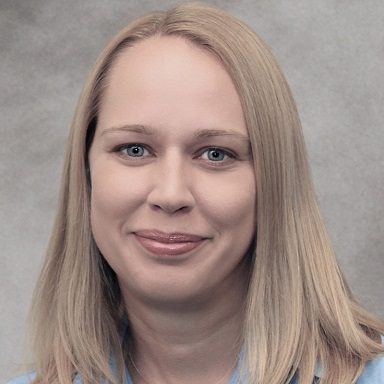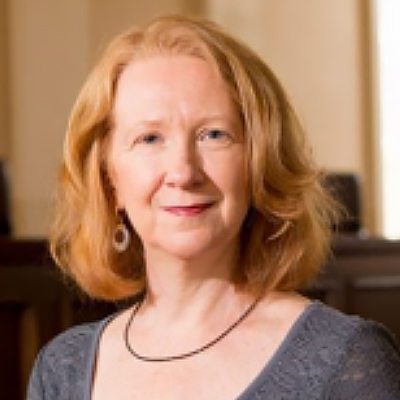
When she worked as a school psychologist, Sycarah Fisher found that the students labeled “bad” were her favorite kids. As she dealt with them, she “learned to love them and realize that their behaviors are a symptom of a much larger problem.”
That much larger problem is now a central focus of her research as a UGA associate professor of educational psychology and collaborator at the university’s Center for Family Research. Her goal is to help counselors and social workers, as well as the entire school system, recognize that when students present with problem behavior, including substance use, the solution is not the harsh discipline that leads to a “school-to-prison pipeline,” but instead, evidence-based mental health services that take the context of the behavior into account.
“there is a level of system disorganization that prevents real change”
It’s not that teachers and administrators do not care, according to Fisher, who serves as graduate coordinator in the Department of Educational Psychology at the Early College of Education. Most of them are “super hardworking, caring, loving and want the best, but there is a level of systemic disorganization that prevents real change,” she said. “I think it’s partially because you’re dealing with a population that has its own chaos going on.”
As one high school student described to her, his use of pot was a coping mechanism for the bedlam in his life. Taking this kind of context into account includes understanding the effects of race-related stressors on substance use practices as well as racial identity as a factor that can protect youth from some of these stressors.
When Fisher left a school psychologist job in Washington, D.C., to become a professor and researcher, she left in tears, telling students that her scholarly work was “going to make schools better places for you to be in.” It is a promise she is working to fulfill.
The roots of her selfhood and career
While her career path makes sense, it is probably not what anyone would have predicted. Her parents divorced when she was just 3 months old, and she lived exclusively with her mother in a duplex across the street from “the projects.” But wanting to improve their lives, her mother went back to school before Fisher started third grade, and to accommodate this, she moved in with her father where she lived much more affluently and attended better schools.

Dr. Fisher, far right, in a rare childhood gathering with her siblings from both families in 1991.
Going back and forth between these households and watching her half-siblings in each grow up in very different environments, fueled her ability to depend on herself and gave her an unusual perspective.
“Seeing that my brothers sort of crumbled under those sort of adverse childhood experiences … made me really interested in studying resilience when I was in graduate school,” she said. The interest was both practical and academic. “When they experience very similar things, what makes some people rise to the occasion and go above it, and what makes some people really just crumble?”
Clearly, Fisher has been resilient from the start, though ironically, she was looking at her high school report card with her 10-year-old daughter recently and noticed she got a D in psychology—a class she remembers liking. Her surprised daughter said, “You got a D in the field that you work in?”
It caused Fisher to wonder what was going on in her life at that point. But it gave her a chance to show her daughter that perseverance pays off, and she concluded that her circumstances created the drive in her to succeed. “Something needs to happen,” she remembers thinking, “or otherwise, I’m going to still be in this constant sort of chaotic cycle.” Even her family seemed to expect the chaos to prevail. “You know,” her mother once said, “we’re surprised you turned out so well.”
“I don’t need a layup”
Fisher overcame the expectations, and this “I’ll show you” response occurred again years later when she was an assistant professor at Howard University and contemplating a move to another school. A superior said to her, “Getting tenure at those big research one institutions is really hard. Do you think you really want to go, you know, and deal with that?” It lit a fire under Fisher who made the move partly to prove she could make it anywhere and because, as she put it, “I don’t need a layup” to succeed. She moved from Howard to the University of Kentucky before landing at UGA where she was awarded tenure last year.
Rushing to success has been a theme in her life. She skipped first grade; finished college early; and has often been given responsibilities quickly in her work such as becoming the director of the doctoral program in school psychology at Howard University after just her first semester there.
It is hard not to wonder if she fits the mold of “John Henryism,” a concept which underlies much of the work at UGA’s Center for Family Research. It is the idea that some African Americans are highly driven to succeed despite having to overcome circumstances that make success difficult such as a lack of resources and having to overcome personal and systemic racism. Though they succeed, they pay a price in their health through increased metabolic disease caused by the long-term effects of stress.
“I definitely resonated with a lot of the things that he was saying,” she says of the conversation she led in an online symposium with John Henryism theorist, Sherman James, though thus far, fortunately, she does not fit mold because stress-related disorders have not manifested themselves (Fisher thinks she may have been somewhat protected because of her regular use of exercise and meditation).
But the psychology of race is certainly part of her story. Her father insisted on his children living in the best neighborhoods and going to the best schools, and that meant being in mostly white neighborhoods and schools. When she would go back to her mother’s home, friends there noticed the difference and would ask, “why do you talk like that?”
These experiences inform her research on ethnic identity. “I had a really hard time with my own identity development growing up in spaces like that,” she said. It was difficult to navigate being one of only two Black kids in her entire class while living with her dad, and then going back into a more diverse working-class neighborhood and school at her mother’s. “I had a lot of internalized racism,” she admits. There was no discussion of what it meant to be African American or encouragement to look at the great things that Black people have done.

Sycarah Fisher during a recent discussion in one of her courses.
As in much of her life, Fisher dealt with the issue herself. “I had identified in myself that I was struggling with aspects of my identity and internalized racism that I needed to confront head on,” she says, so she intentionally chose a Historically Black College/University for college—Hampton University. It helped. “I got to see the heterogeneity of Black people as opposed to the monolith that they try to sell you in TV and news,” she says, which led to her forming a better sense of herself in her family and as an African American.
“You never quite know where you fit in”
This kind of racial socialization which was missing in her upbringing is part of her research now, and it is part of a growing body of research that demonstrates how racial socialization strategies for African American youth can shield them from some negative outcomes associated with interpersonal and systemic racism.
Fisher’s confusion of racial identity paralleled an uncertainty about her place in the world in general. Shuffling between her parents’ households—each with a different set of siblings—meant having to find her place in each, every time she rejoined them. “You never quite know…where you fit in,” she said.
Research and Implementation
Steve Kogan, Fisher’s mentor, seems to think she has found her place at UGA. He describes her as “brilliant, committed, and kind.” Fisher reached out to Kogan, Athletic Association Professor of Human Development and Family Science at UGA, to find other scholars who were interested in substance use and Black youth. Now the two work together as part of CFR’s Center for Translation and Prevention Science, which seeks to understand the factors that protect rural African American youth from the stress of low-resource environments and racism.
Kogan also mentors her in another project, the OIBR grant development program through the Owens Institute for Behavioral Research, which is strengthening her skills in seeking external funding.

Fisher teaching a recent Multicultural Psychology and Social Justice class.
But it is not all about research and service for Fisher. She fully embraces her role as an instructor as well. “I love those connections and relationships and helping to train future generations,” she says, and that enthusiasm is backed up by several teaching awards.
First-year doctoral student Brianna Caldwell said Fisher drew her to UGA. It was Fisher’s approach to studying mental health and substance use that got her attention, but it was Fisher’s general demeanor that drew her in. Caldwell is now Fisher’s advisee and works in her PRISMS Lab (Prevention Research In Substance use and Minority Health in Schools).
“she encourages me and pushes me to think really critically about things”
Not long ago, Caldwell texted Fisher and asked, “Do you have five minutes?” The five-minute conversation turned into 15 minutes, and “she literally talked to me as she was getting ready to do something else,” Caldwell said. Whether through work, class or individual conversations, “she encourages me and pushes me to think really critically about things.”
Over the course of her career so far, from her doctoral work at Michigan State University, faculty positions at Howard University and the University of Kentucky, and now at UGA since 2019, Fisher has focused her work in two areas: examining risk and resilience patterns among African American youth related to mental health and substance use, and ways of expanding mental health services and substance use prevention in low-income, minority serving schools.

A PRISMS Lab meeting with Fisher and Caldwell (left, center) along with Madison Rodriquez, left, and Shlon Smith, right.
The latter work, in keeping with her promise to her former high school students to make schools better for them, is the object of projects with CFR and her own lab. “Everybody’s talking about implementation of evidence-based substance use prevention programs,” Kogan says, “but not really in the context of high stress schools.” Combining basic research on factors that contribute to substance use with intervention training in public schools, Fisher is working to expand the reach of evidence-based interventions. “As far as we can tell,” Kogan says, “she’s the first person to really pose questions about this.”
You cannot get around describing Fisher as driven when considering her career. It is a trait that apparently has its roots in her early life experiences. After a childhood spent wondering where she belonged, it seems she has found her place, or perhaps more accurately, she has made her place.


